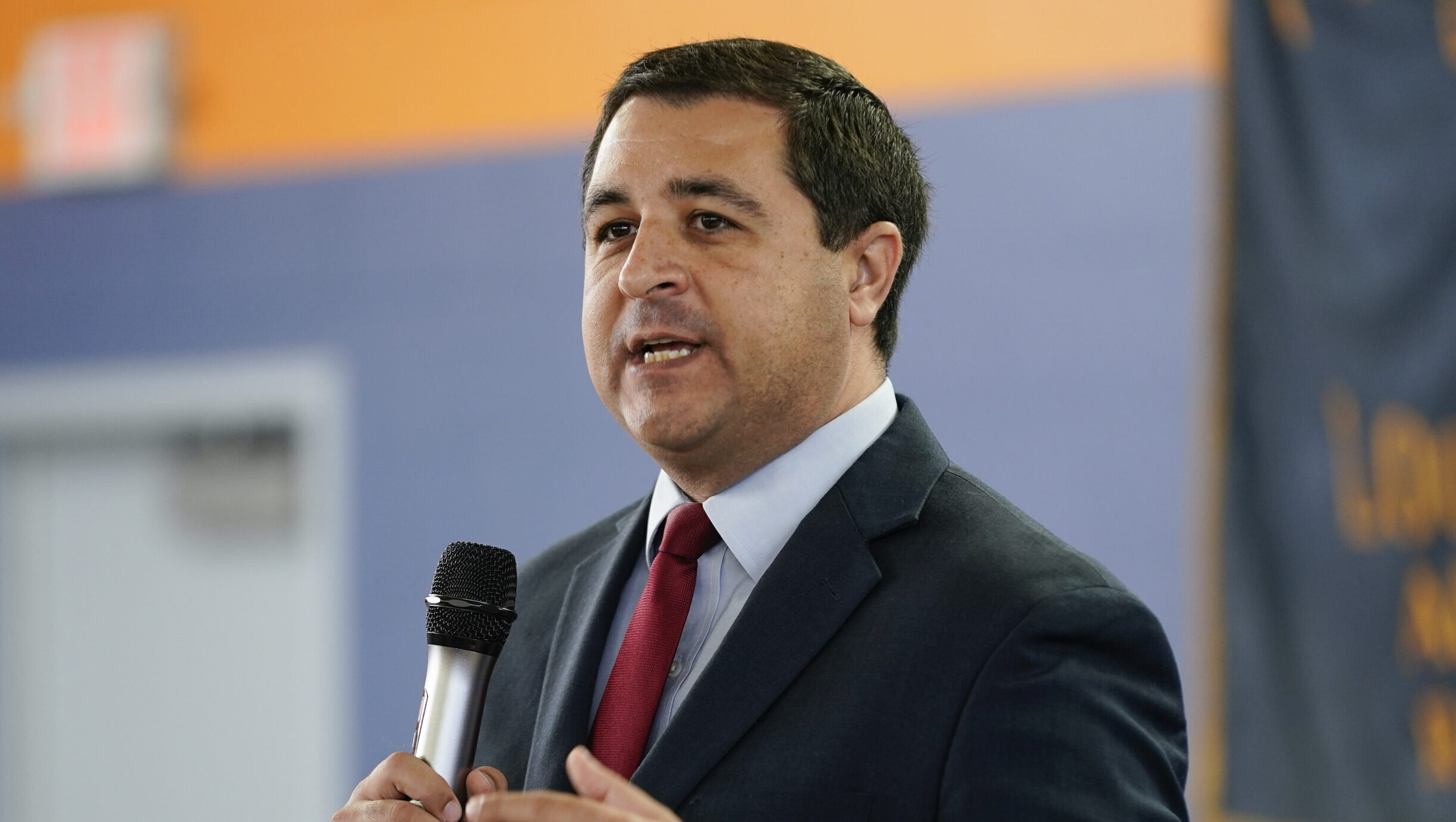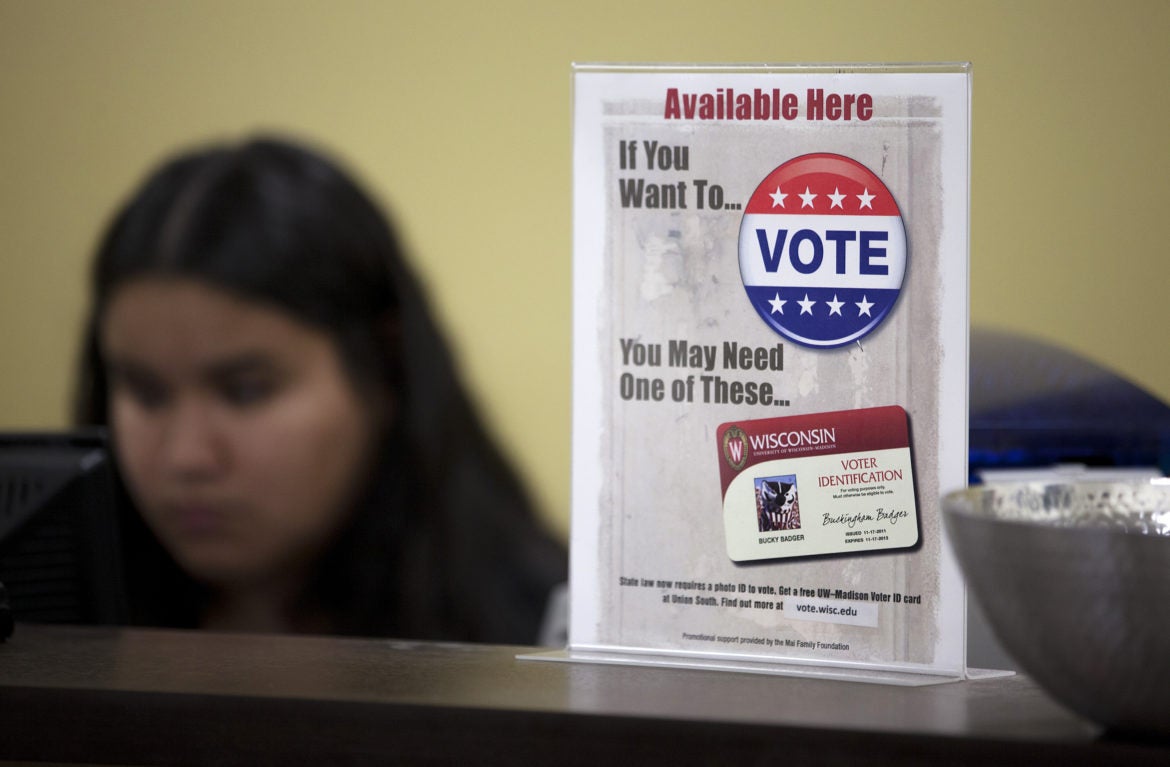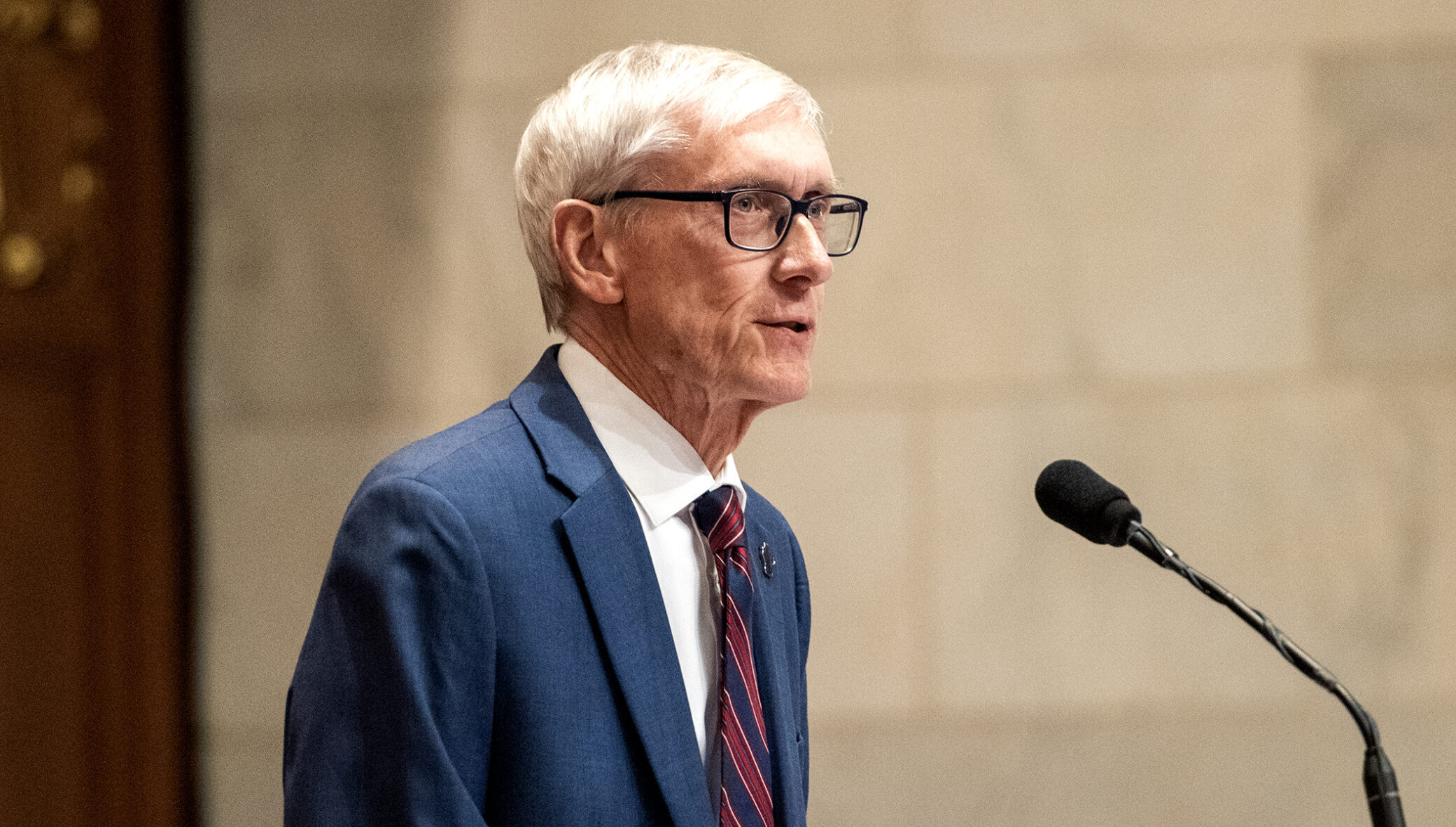A judge has struck down the laws Wisconsin Republicans passed in December’s lame-duck session of the Legislature, restoring powers to Democratic Gov. Tony Evers, if only temporarily.
Dane County Judge Richard Niess ruled Thursday that all of the laws and appointments passed by legislators were unlawful because they met in what’s known as an “extraordinary session,” which isn’t explicitly allowed under the state constitution.
“There can be no justification for enforcement of the unconstitutional legislative actions emanating from the December 2018 ‘Extraordinary Session’ that is consistent with the rule of law,” Niess wrote.
Stay informed on the latest news
Sign up for WPR’s email newsletter.
Evers seized on the decision almost immediately, calling on the Wisconsin Department of Justice, led by Democratic Attorney General Josh Kaul, to leave a lawsuit that seeks to overturn the Affordable Care Act.
“As the governor has requested, please take whatever steps are necessary to remove Wisconsin from Texas v. United States,” wrote Evers’ chief legal counsel, Ryan Nilsestuen in an email to the DOJ shortly after Niess’ ruling was released.
Shortly afterward, Kaul’s office announced it had filed motions to withdraw Wisconsin from the Obamacare lawsuit. Evers and Kaul campaigned on leaving the case, but one of the lame-duck laws has prevented them from following through on their pledge.
Evers could potentially use the ruling to exercise other powers that were held by his predecessor, former Republican Gov. Scott Walker, though he suggested Thursday that he was not in a rush to move on other issues.
In theory, the decision could let Evers rescind several federal waiver requests that were initiated by Walker, including a new work requirement for Medicaid recipients and mandatory drug testing for people who sign up for FoodShare.
Niess’ ruling also struck down 82 appointments Walker made during the waning days of his administration, all of which were confirmed by Republican state Senators in the lame-duck session. Those appointments included Public Service Commissioner Ellen Nowak and University of Wisconsin Regent Scott Beightol, both of whom were confirmed in December to terms that end in 2023.
“The appointments are ordered temporarily vacated as a necessary consequence of this temporary injunction,” Niess wrote.
If Niess’ ruling holds, those appointments would now be Evers’ to make.
Asked by reporters Thursday whether he would indeed take other steps, Evers said he needed a chance to digest the ruling.
“We will be moving forward, not with speed, but with thoughtfulness,” Evers said. “We believe that at the end of the day, even if it’s appealed, the injunction will be in place.”
What remains to be seen is whether a higher court will step in to block Evers from taking further action.
Niess rejected a request by the attorney for GOP legislators that would have “stayed” his decision, or kept the lame-duck laws in effect while this case is appealed. But the final say in this case still falls to the Wisconsin Supreme Court, where conservatives hold a 4-3 majority.
Assembly Speaker Robin Vos, R-Rochester, and Senate Majority Leader Scott Fitzgerald, R-Juneau, promised to appeal the ruling, saying in a statement that it ran contrary to the way the Legislature had done business for years.
“For decades the Legislature has used extraordinary sessions that have been widely supported by members of both parties,” they said. “Today’s ruling only creates chaos and will surely raise questions about items passed during previous extraordinary sessions.”
The lawsuit was brought by a coalition of plaintiffs that includes the League of Women Voters of Wisconsin, Disability Rights Wisconsin, Inc. and Black Leaders Organizing for Communities. Unlike other lawsuits challenging the lame-duck session, their case was built entirely on a procedural argument.
The groups argued that the entire lame-duck session was unlawful because the Legislature met in what’s known as an “extraordinary session,” which isn’t explicitly allowed under the state constitution.
Unlike special sessions, which have been called by Wisconsin governors dating back to 1861, extraordinary sessions are called by lawmakers when they’re not scheduled to be at the state Capitol. Legislators have done that about two dozen times in Wisconsin, with the first extraordinary session occurring in 1980, according to the nonpartisan Legislative Reference Bureau.
During arguments in the case on Monday, the Legislature’s attorney, Misha Tseytlin, argued that striking down one extraordinary session would mean striking down all of them. Tseytlin said that would include striking down laws that spell out prison terms for sex offenders.
Niess rejected that argument in his ruling.
“The Legislature attempts to scare this Court into abandoning its duty to vacate unconstitutional laws by urging an alarmist domino-theory collapse of laws previously produced by ‘extraordinary sessions,’” Niess wrote. “This theory is unsupported by either law or facts in this record, it’s pure speculation, and, most importantly, not at issue under this Court’s temporary injunction, which is expressly limited to the laws enacted in December 2018.”
The League of Women Voters case is one of four challenging the lame-duck session of the Legislature.
A federal judge ruled against Republicans in January, blocking laws that were passed in the lame-duck session that limited early voting.
Another federal case filed by the Democratic Party of Wisconsin argues the lame-duck laws violate the U.S. Constitution’s Guarantee Clause, which guarantees every state the right to a republican form of government.
And another state lawsuit, brought in Dane County Circuit Court by Service Employees International Union and others in organized labor, contends the lame-duck laws violate the state constitution’s separation of powers protections. A hearing is scheduled in that case for Monday.
Editor’s note: WPR’s Laurel White contributed to this story.
Wisconsin Public Radio, © Copyright 2025, Board of Regents of the University of Wisconsin System and Wisconsin Educational Communications Board.





